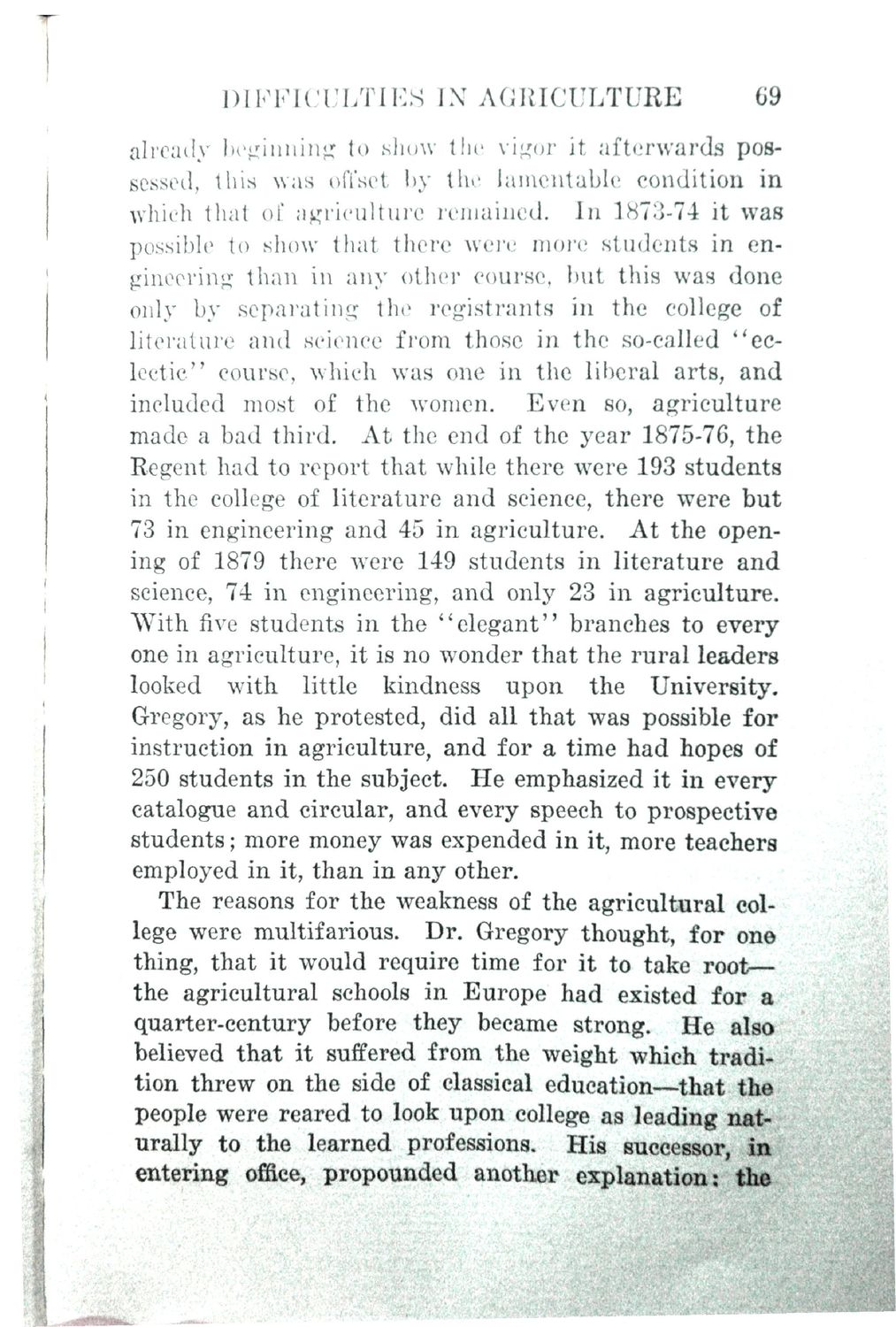| |
| |
Caption: Book - History of the University (Nevins)
This is a reduced-resolution page image for fast online browsing.

EXTRACTED TEXT FROM PAGE:
DIFFICULTIES IN AGRICULTURE 69 already beginning to show the vigor it afterwards possessed, this was offset by the lamentable condition in which that of agriculture remained. In 1873-74 it was possible to show that there were more students in engineering than in any other course, but this was done only by separating the registrants in the college of literature and science from those in the so-called "eclectic' \ course, which was one in the liberal arts, and included most of the women. Even so, agriculture made a bad third. At the end of the year 1875-76, the Regent had to report that while there were 193 students in the college of literature and science, there were but 73 in engineering and 45 in agriculture. At the opening of 1879 there were 149 students in literature and science, 74 in engineering, and only 23 in agriculture. "With five students in the "elegant" branches to every one in agriculture, it is no wonder that the rural leaders looked with little kindness upon the University. Gregory, as he protested, did all that was possible for instruction in agriculture, and for a time had hopes of 250 students in the subject. He emphasized it in every catalogue and circular, and every speech to prospective students; more money was expended in it, more teachers employed in it, than in any other. The reasons for the weakness of the agricultural college were multifariousjk Dr. Gregory thought, for one thing, that it would require time for it to talBJJjpoot— the agricultural schools in Europe had existejl for a quarter-century before they became strong, fie also believed that it suffered from the weight which | f i | f l | tion threw on the side of classical education—that the people were reared to look upon college as leading naturally to the learned professions. His rae|fessoiy|in entering office, propounded another explan&on^the
| |